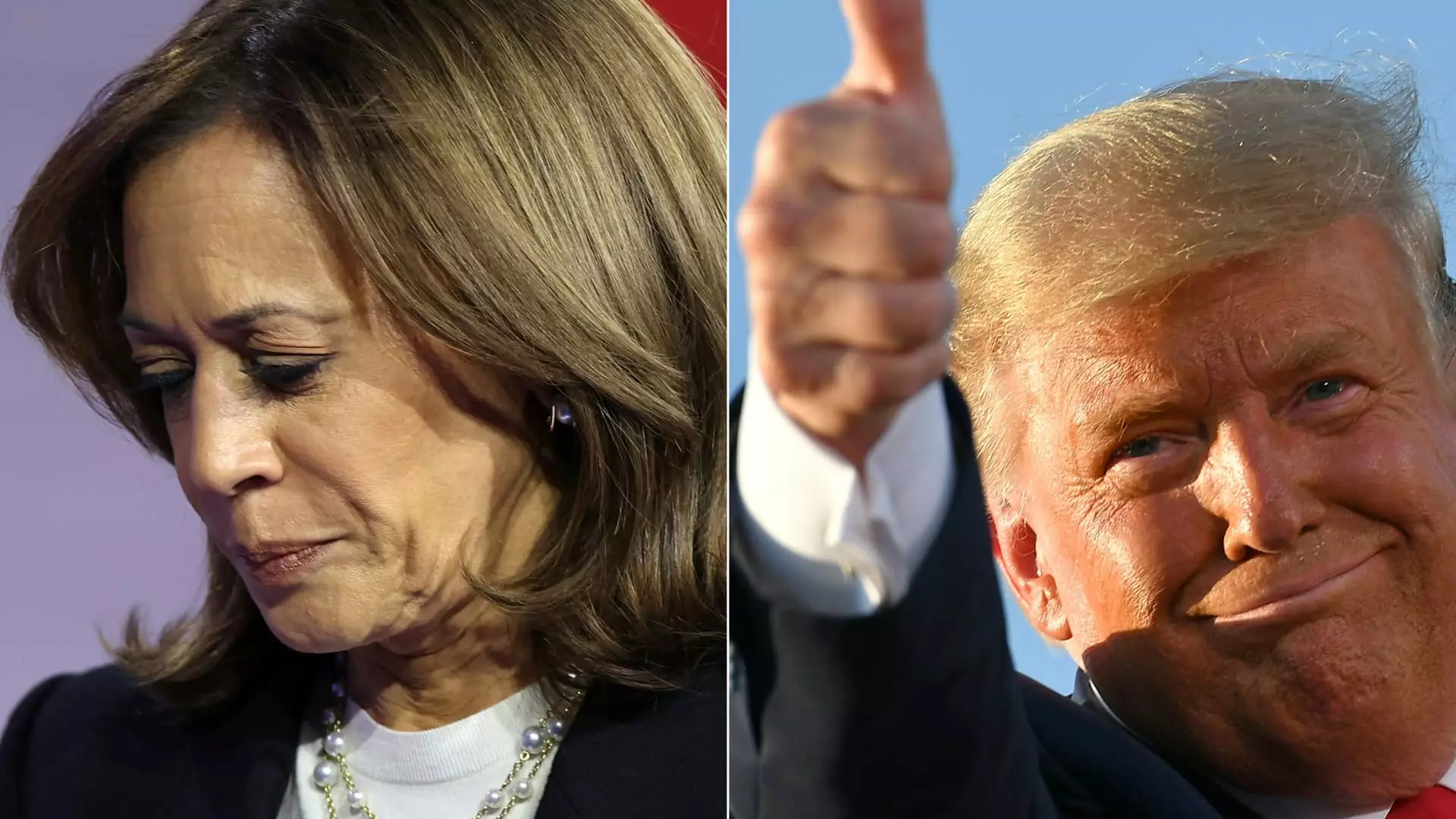Arizona, a state that has long been viewed through the lens of its Republican past, showcases an evolving political narrative. Once regarded as a bastion of GOP control, the state exhibited a remarkable transformation that saw it lean toward Democratic candidates in recent elections. Notably, President-elect Donald Trump’s projected victory in the state marks an intriguing and contentious shift following Joe Biden’s narrow win in 2020. This oscillation between party dominance emphasizes the volatile nature of Arizona’s political affiliations.
The pivotal elections over the past few years reveal an intricate web of factors influencing Arizona’s political climate. What was once a Republican stronghold saw a Democratic resurgence, as evidenced by the election of a Democratic governor and two Democratic senators. This transition points to a growing diversification within the electorate, driven by a burgeoning Latino population and shifting attitudes among established Republicans who have distanced themselves from Trump’s fiery rhetoric. This demographic evolution hints at a broader national trend where traditional voting patterns are frequently upended.
The closeness of elections in Arizona serves as a critical bellwether, underscoring the fierce competition for votes that is characteristic of contemporary presidential races. Biden’s victory, clinched by a mere 0.3 percentage points, illustrated how the state has transformed into a battleground. With Trump’s projected win, political analysts face a conundrum: which strategies will resonate with Arizona voters amid this backdrop of razor-thin margins?
The appeal of Trump’s key issues—immigration and economic concerns—has solidified his base in the face of a challenging electoral environment. High gas prices and economic instability have galvanized support, creating a fertile ground for Trump’s messaging. At the same time, both parties recognized the importance of ground game efforts, as seen in the intense voter registration drives leading up to the election. The stakes are high, not only for the candidates but also for the direction of statewide policy and potential national implications.
Despite the political volatility, one cannot ignore the effects of misinformation and conspiracy theories that have permeated Arizona’s political discourse. Trump’s baseless claims regarding election integrity in 2020 reverberated throughout state politics, leading to a splintering of allegiances even among Republicans. The aftermath of these claims, particularly after disappointing results for some GOP candidates in the 2022 midterms, raises questions about the sustainability of such rhetoric and its influence on voter motivations.
Campaign strategies have also evolved. Notably, Trump’s campaign was marked by being outspent and out-organized, particularly against Harris’s campaign machinery. Nonetheless, this did not prevent him from capitalizing on emergent themes that resonate with the core issues affecting Arizona residents. This highlights a strategic dichotomy: while traditional campaigning methods are important, understanding the electorate’s immediate concerns is paramount.
Looking Ahead: Arizona’s Role in National Politics
As Arizona continues to fluctuate between political ideologies, it firmly establishes itself as a crucial player in the national electoral landscape. Its voting patterns could serve as a microcosm of broader demographic shifts occurring across the United States. With the surge in voter registration among Republicans and the enduring appeal of core Trump issues, Arizona will remain a pivotal focus for both parties leading up to the next presidential election.
Arizona’s journey reflects the dynamics of a rapidly changing political climate, with demographic changes and strategic campaigning vying for influence in a state that’s no longer easily categorized as red or blue. The lessons learned and trends observed here will likely resonate far beyond state lines, shaping future electoral strategies nationwide.


Leave a Reply